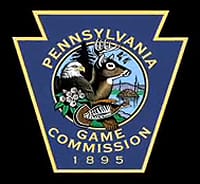Pennsylvania Game Commission Wildlife Conservation Officer Grove Killed In The Line Of Duty

HARRISBURG, PA –-(Ammoland.com)- Pennsylvania Game Commission Wildlife Conservation Officer (WCO) David L. Grove was shot and killed in the line of duty while on patrol around 10:30 p.m., on Nov. 11, along Shrivers Road in Freedom Township, Adams County. Grove, age 31, of Fairfield, Adams County, was investigating reports of ongoing night-time shooting and possible poaching activity in the area.
The Pennsylvania State Police is leading the investigation into the killing of WCO Grove.
Prior to this incident, the last Game Commission Officer to have been shot and killed in the line of duty was Game Protector Joseph McHugh in Weatherly, Carbon County, on Nov. 7, 1915.
“We are shocked and saddened by the killing of WCO Grove,” said Carl G. Roe, Game Commission executive director. “He was a bright, young officer who was dedicated to conserving Pennsylvania’s wildlife resources, and promoting our state’s rich hunting and trapping heritage.
“Our prayers and thoughts go out to WCO Grove’s family and friends, as we mourn the loss of one of our own.”
A graduate of the 27th Class of the Game Commission’s Ross Leffler School of Conservation, Grove was commissioned a full-time Wildlife Conservation Officer on March 8, 2008, and assigned to the southern district of Adams County.
Before being appointed a WCO Cadet, Grove had served as a Deputy WCO in Franklin County, from 2001 until 2007. Grove also worked at the Penn State University Deer Research Facility in University Park, Centre County, from 2003 until 2004.
Grove graduated, in 1997, from Grace Academy in Hagerstown, Maryland, and he attended Appalachian Bible College, in Bradley, West Virginia, from 1997 until 1999. In 2004, Grove earned a bachelor’s degree in wildlife and fisheries science from Penn State University.
WCOs are responsible for administering a wide variety of Game Commission programs within an assigned district of about 350 square miles. Primary duties include law enforcement, responding to wildlife conflicts, conservation education, and administration of the Hunter-Trapper Education program. Officers also are responsible for supervising and training part-time Deputy Wildlife Conservation Officers.
After being accepted to the agency’s Ross Leffler School of Conservation, WCO Cadets are required to complete an intensive 50-week training program. Major subject areas of instruction include: wildlife management; law enforcement; principles and methods; wildlife laws and regulations; land management practices; public relations and conservation education; firearms training and unarmed self-defense; and agency administrative procedures. In addition to classroom studies, the training program includes temporary field assignments with experienced officers. Field training provides cadets with practical experience in law enforcement and other duties performed by Wildlife Conservation Officers.
Upon successfully completing the training program, WCO cadets are promoted to the position of Wildlife Conservation Officer and are assigned to fill vacancies throughout the Commonwealth. WCOs work under the supervision of a Region Director and supervisory staff, and generally work 40 hours per week and are eligible for overtime under certain conditions. Hours of work vary and often include nights, weekends and holidays.
In 1930, Ross Leffler, the then-president of the Pennsylvania Board of Game Commissioners, proposed the establishment of a training school for “Game Protectors,” as they were called at that time. When the training school opened its doors in Brockway, Jefferson County, in 1932, it was the first such conservation officer training school in the world and served as a model for other states.
From 1932 until 1935, the Ross Leffler School of Conservation offered in-service training for Game Protectors. The Game Commission made the school a permanent facility and enrolled its first class of Cadets in 1936. The agency continued training new classes at this facility until 1986. In 1987, the training school was moved to the Harrisburg headquarters, which had just opened the doors to its current facility in Susquehanna Township, Dauphin County.
